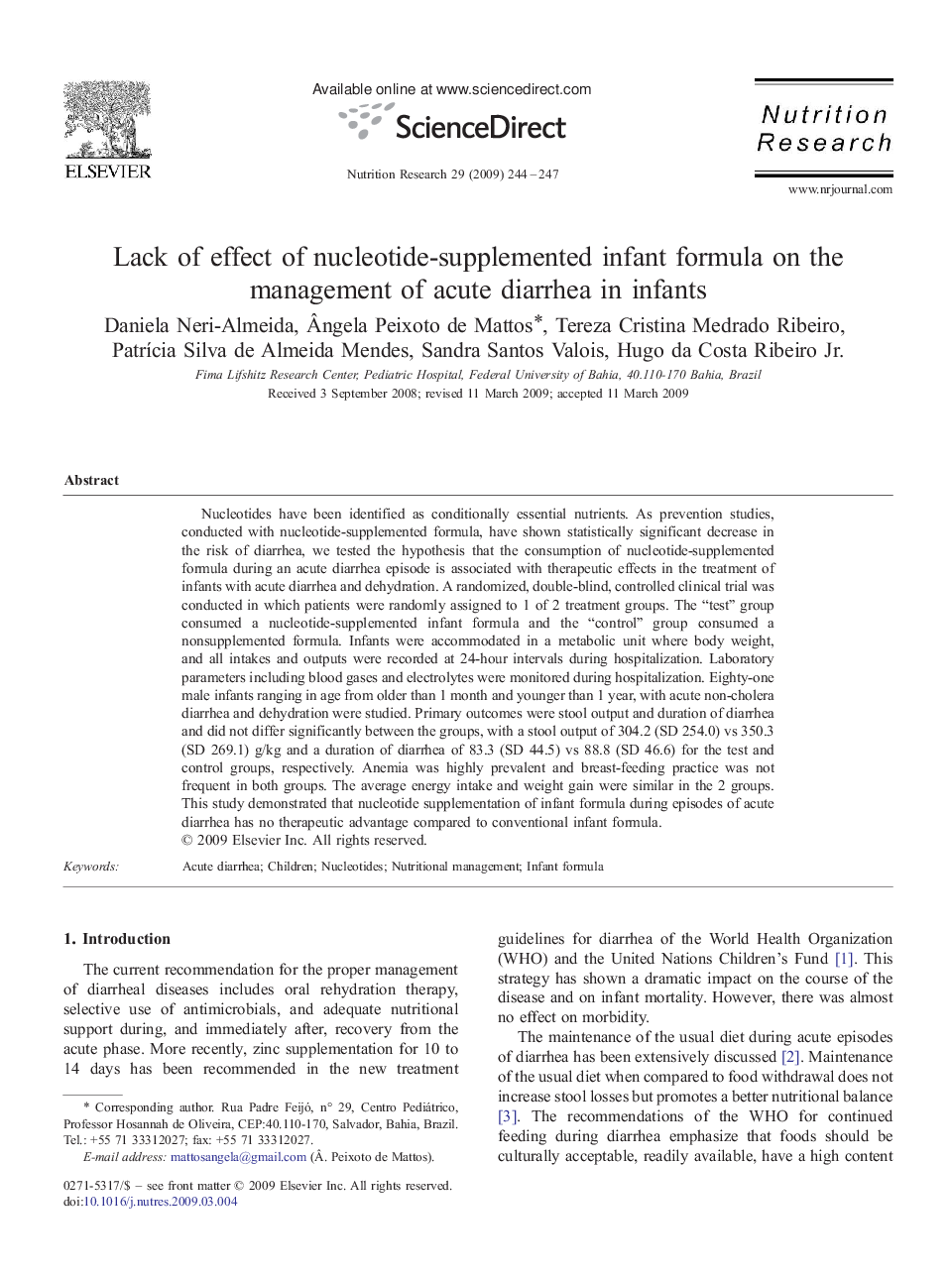| Article ID | Journal | Published Year | Pages | File Type |
|---|---|---|---|---|
| 2809899 | Nutrition Research | 2009 | 4 Pages |
Nucleotides have been identified as conditionally essential nutrients. As prevention studies, conducted with nucleotide-supplemented formula, have shown statistically significant decrease in the risk of diarrhea, we tested the hypothesis that the consumption of nucleotide-supplemented formula during an acute diarrhea episode is associated with therapeutic effects in the treatment of infants with acute diarrhea and dehydration. A randomized, double-blind, controlled clinical trial was conducted in which patients were randomly assigned to 1 of 2 treatment groups. The “test” group consumed a nucleotide-supplemented infant formula and the “control” group consumed a nonsupplemented formula. Infants were accommodated in a metabolic unit where body weight, and all intakes and outputs were recorded at 24-hour intervals during hospitalization. Laboratory parameters including blood gases and electrolytes were monitored during hospitalization. Eighty-one male infants ranging in age from older than 1 month and younger than 1 year, with acute non-cholera diarrhea and dehydration were studied. Primary outcomes were stool output and duration of diarrhea and did not differ significantly between the groups, with a stool output of 304.2 (SD 254.0) vs 350.3 (SD 269.1) g/kg and a duration of diarrhea of 83.3 (SD 44.5) vs 88.8 (SD 46.6) for the test and control groups, respectively. Anemia was highly prevalent and breast-feeding practice was not frequent in both groups. The average energy intake and weight gain were similar in the 2 groups. This study demonstrated that nucleotide supplementation of infant formula during episodes of acute diarrhea has no therapeutic advantage compared to conventional infant formula.
